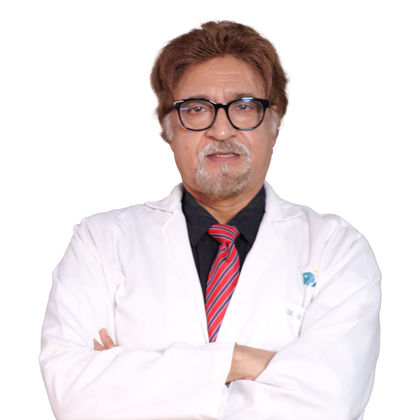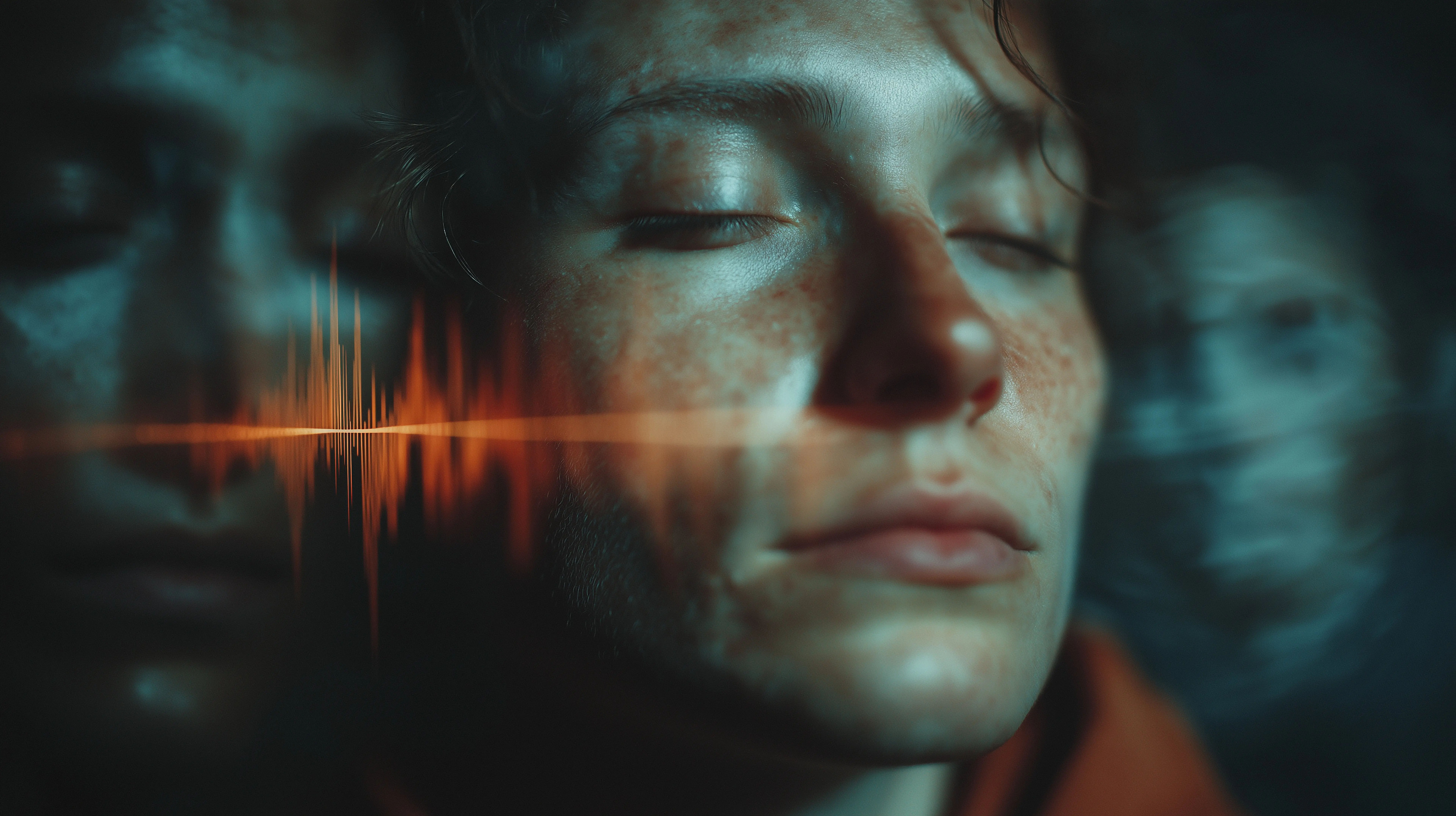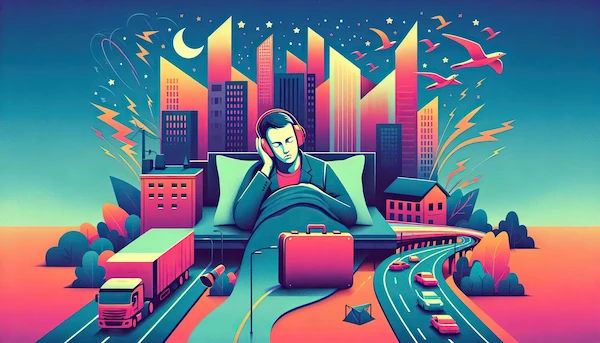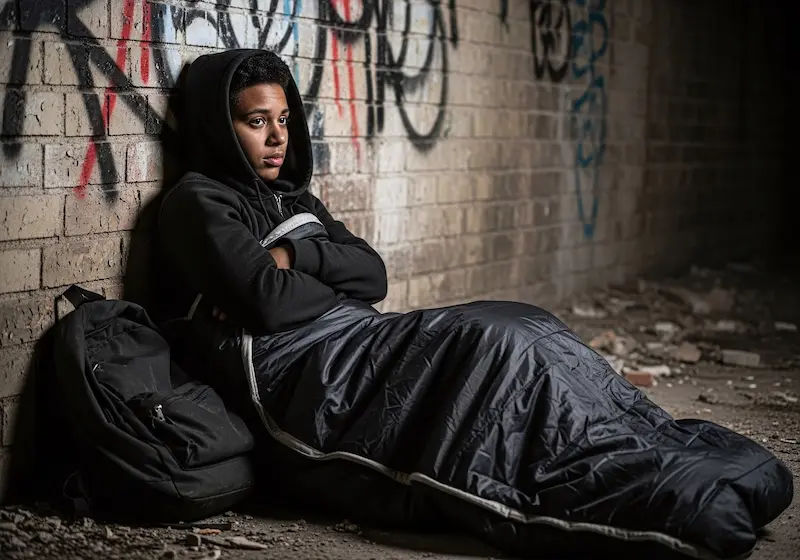Your Guide to Sleep Disorders: Types, Symptoms, and Treatments
Discover everything about sleep disorders, including its common types, warning signs, causes, diagnosis methods, and effective treatment options.

Written by Dr. Rohinipriyanka Pondugula
Reviewed by Dr. Shaik Abdul Kalam MD (Physician)
Last updated on 13th Jan, 2026

Introduction
Do you spend your nights staring at the ceiling or your days fighting an overwhelming urge to nap? You're not alone. Millions of people worldwide struggle with sleep disorders, a term that encompasses more than just occasional restlessness. These are chronic conditions that disrupt your natural sleep cycle, impacting every facet of your health, from your mood and energy levels to your heart health and immune system. Ignoring persistent sleep problems can have serious consequences. This comprehensive guide will walk you through everything you need to know about common sleep disorders—from identifying the signs and understanding the causes to exploring effective treatments and knowing when it's time to seek professional help. Let's unravel the mystery of sleep and reclaim the restful nights you deserve.
What Exactly is a Sleep Disorder?
More Than Just a Bad Night's Sleep
A sleep disorder is a clinical condition that regularly impacts your ability to get enough quality sleep. While everyone has a rough night now and then, a disorder involves a persistent pattern of sleep disruption that causes daytime distress and impairs your ability to function. It's a problem with the very architecture of your sleep—the cycles of REM (rapid eye movement) and non-REM sleep that are crucial for physical restoration and mental processing.
Why You Shouldn't Ignore the Signs
Dismissing chronic sleep issues as mere stress or aging is a common mistake. Untreated sleep disorders are linked to a host of long-term health problems, including high blood pressure, heart disease, stroke, diabetes, and depression. They can also severely affect your cognitive abilities, memory, and reaction time, increasing the risk of accidents. Recognising and treating a sleep disorder is not a luxury; it's a critical component of preventive healthcare.
Consult a Somnologist for the best advice
The Most Common Types of Sleep Disorders
Insomnia: The Trouble Falling and Staying Asleep
Insomnia is the most well-known sleep disorder, characterised by persistent difficulty falling asleep, staying asleep, or waking up too early. It can be short-term (acute), often triggered by stress, or chronic, lasting for months or even years. How to diagnose insomnia often starts with tracking your sleep patterns, but a professional diagnosis is key to rule out other causes.
Sleep Apnoea: When Breathing Stops and Starts
Sleep apnoea is a serious disorder where breathing repeatedly stops and starts during sleep. The most common type is obstructive sleep apnoea (OSA), where the throat muscles relax and block the airway. The less common central sleep apnoea occurs when your brain doesn't send proper signals to the muscles that control breathing. Loud snoring, gasping for air, and morning headaches are classic symptoms of sleep apnoea in women and men.
Obstructive Sleep Apnoea (OSA) vs. Central Sleep Apnoea
OSA is a mechanical issue—a physical blockage of the airway.
Central sleep apnoea is a communication issue—a problem with the brain's respiratory control center.
Restless Legs Syndrome (RLS): The Uncontrollable Urge to Move
RLS causes an uncomfortable, often irresistible urge to move your legs, usually in the evenings or at night when you're resting. This sensation is temporarily relieved by movement. The exact cause is unknown, but it can be related to genetics, iron deficiency, or chronic diseases. Finding the best treatment for restless legs syndrome can significantly improve sleep quality.
Narcolepsy: The Intrusion of Sleep into Wakefulness
Narcolepsy is a neurological disorder that affects the brain's ability to control sleep-wake cycles. People with narcolepsy experience overwhelming daytime drowsiness and sudden, uncontrollable "sleep attacks." It may also involve cataplexy (a sudden loss of muscle tone triggered by strong emotions), sleep paralysis, and vivid hallucinations.
How Are Sleep Disorders Diagnosed?
If your sleep problems are persistent and affecting your daily life, it's crucial to get a professional evaluation. The process often begins with your primary care doctor, who may refer you to a sleep specialist.
The Role of a Sleep Diary: Before any tests, you may be asked to keep a detailed sleep diary for 1-2 weeks, logging when you go to bed, fall asleep, wake up, take naps, and how you feel during the day.
In-Lab Sleep Study (Polysomnography): This is the gold standard for diagnosing many sleep disorders, especially sleep apnoea. You stay overnight in a sleep lab where sensors monitor your brain waves, eye movements, heart rate, breathing, and oxygen levels.
Home Sleep Apnoea Testing: For suspected moderate to severe obstructive sleep apnoea, a simpler home test may be used to monitor your breathing, oxygen levels, and airflow.
If your condition does not improve after trying lifestyle changes, book a physical visit to a doctor with Apollo24|7 for further evaluation and to discuss if a sleep study is right for you.
Effective Treatment Options for Better Sleep
The good news is that nearly all sleep disorders are treatable. The right approach depends on the specific diagnosis.
Cognitive Behavioural Therapy for Insomnia (CBT-I): This is the first-line, highly effective treatment for chronic insomnia. It helps you identify and replace thoughts and behaviours that cause or worsen sleep problems with habits that promote sound sleep.
Positive Airway Pressure (PAP) Therapy for Sleep Apnoea: The most common treatment for OSA is a CPAP (continuous positive airway pressure) machine. It delivers a steady stream of air through a mask to keep your airway open while you sleep.
Medications: While not a long-term cure, sleep aids, melatonin supplements, or other medications can be helpful for short-term use or for specific disorders like narcolepsy or RLS. They should always be used under a doctor's supervision.
Lifestyle Modifications: Improving your sleep hygiene is a foundational step for managing any sleep issue. This includes maintaining a consistent sleep schedule, creating a restful environment, limiting caffeine and alcohol, and exercising regularly.
When to See a Doctor About Your Sleep
It's time to consult a healthcare professional if:
Your sleep problems occur regularly, at least three nights a week.
You consistently take more than 30 minutes to fall asleep.
You experience excessive daytime sleepiness, irritability, or lack of focus.
Your partner notices you snoring loudly, gasping, or stopping breathing during sleep.
Your lack of sleep is affecting your work performance, mood, or quality of life.
If symptoms persist beyond two weeks, consult a doctor online with Apollo24|7 for further evaluation. Early diagnosis is the first step toward effective treatment.
Conclusion
Understanding sleep disorders is the first step toward overcoming them. These conditions are complex and multifaceted, but they are also highly manageable with the right knowledge and professional guidance. From the pervasive fatigue of insomnia to the dangerous breathing pauses of sleep apnoea, each disorder requires a specific approach. By recognising the symptoms, understanding the serious health implications, and taking proactive steps towards a diagnosis, you can break the cycle of sleeplessness. Don't resign yourself to restless nights and foggy days. Embrace the strategies of good sleep hygiene, seek professional help when needed, and invest in your sleep—it's an investment in your overall health, well-being, and quality of life. Start your journey to better sleep tonight.
Consult a Somnologist for the best advice
Consult a Somnologist for the best advice

Dr. Suresh G
General Physician/ Internal Medicine Specialist
25 Years • MBBS, MD
Bangalore
Apollo Clinic Bellandur, Bangalore
(225+ Patients)

Dr. Priya Sharma
Pulmonology/critical Care Specialist
9 Years • DM (PULMONARY MEDICINE), DNB, EDARM, MNAMS
Delhi
Apollo Hospitals Indraprastha, Delhi

Dr. Nagarajan Ramakrishnan
Sleep Medicine Specialist
25 Years • MD, MMM, FACP, FCCP, FCCM
Chennai
Apollo Hospitals Greams Road, Chennai
(25+ Patients)

Dr. Arjun Ramaswamy
Pulmonology Respiratory Medicine Specialist
9 Years • MD (RESPIRATORY MEDICINE), DM (PULMONARY MEDICINE, CRITICAL CARE AND SLEEP MEDICINE)
Mumbai
Apollo Hospitals CBD Belapur, Mumbai
(75+ Patients)

Dr. M S Kanwar
Respiratory Medicine/Lungs Transplants
47 Years • MBBS, MD, DNB , MNAMS, FPGC (Austria), FCCP (USA), FAMS
Delhi
Apollo Hospitals Indraprastha, Delhi
(100+ Patients)
More articles from Sleep disorders
Frequently Asked Questions
1. What is the difference between insomnia and general sleep deprivation?
Insomnia is a sleep disorder where you have the opportunity to sleep but can't, due to difficulty falling or staying asleep. Sleep deprivation is the result of not allowing yourself enough time to sleep, often due to work, stress, or lifestyle choices. Insomnia is a condition; sleep deprivation is a state of deficiency.
2. Are there any natural remedies for sleep disorders like mild insomnia?
Yes, for mild cases, natural remedies for sleep disorders can be helpful. These include establishing a strict sleep schedule, practicing relaxation techniques like meditation or deep breathing, avoiding screens before bed, using magnesium supplements, and creating a dark, cool sleep environment. However, for chronic issues, these should complement, not replace, professional medical advice.
3. I snore. Does that mean I have sleep apnoea?
Not necessarily. While loud, persistent snoring is a primary symptom of sleep apnoea, many people snore without having apnoea (primary snoring). The key differentiator is whether the snoring is accompanied by breathing pauses, gasping, or choking sounds. A sleep study is needed for a definitive diagnosis.
4. Can children have sleep disorders?
Absolutely. Children can experience insomnia, sleep apnoea, night terrors, sleepwalking, and restless legs syndrome. Symptoms might present differently, such as behavioural issues, hyperactivity, or problems at school. If you suspect your child has a sleep disorder, consult a pediatrician.
5. What is the typical cost of a sleep study test?
The cost of a sleep study test (polysomnography) can vary widely based on your location, the facility, and your insurance coverage. It can range from several hundred to a few thousand dollars without insurance. It's best to check with your insurance provider and the sleep clinic for specific cost estimates.




